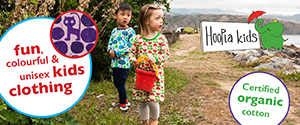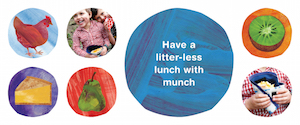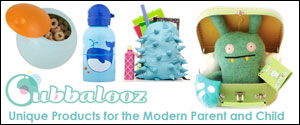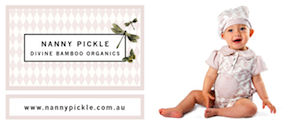keeping healthy
Keeping healthy throughout your pregnancy includes eating healthy food, a healthy lifestyle including exercise, getting enough rest, no smoking or drinking alcohol, and no recreational drugs. It also includes your cultural, spiritual and emotional wellbeing.
Your LMC will see you regularly throughout your pregnancy. S/he will palpate (feel) your abdomen to check your baby’s growth, position and heartbeat, take your blood pressure, and explain to you what these mean for your pregnancy. S/he will also explain how often you need to be seen during your pregnancy and whether these visits will be in your home, at a clinic, marae maternity clinic or at a hospital.
You will be asked to give a sample of your blood early in your pregnancy to test for:
• your blood group
• your haemoglobin (iron content in your blood)
• presence of any antibodies which may be harmful to your baby
• whether you are immune to rubella
• whether you are a hepatitis B carrier.
A blood test may also be done at about 26 to 28 weeks of pregnancy to test for diabetes in pregnancy. This is called a glucose tolerance test. Information is available to help you decide whether you need to be tested for this, or any other tests such as chlamydia, or other diseases which may affect your baby.
• learn more about what will happen to them during pregnancy, labour and birth
• find out about the care they are likely to receive
• understand what happens after their baby is born
• meet other parents-to-be.
• a lower birth weight that could be harmful if the baby is already small or born prematurely
• an increased risk of cot death, pneumonia, asthma or glue ear
• a risk of miscarrying or having a stillborn baby.
There are programmes available to help pregnant women give up or reduce smoking. There is also information available on how to quit smoking or being smokefree. You can call the Quitline Quit Me Mutu on 0800 778 778.
This damage is called Fetal Alcohol Syndrome/Fetal Alcohol Effects or FAS/FAE. There is no known safe level of alcohol use during pregnancy. If you think you are pregnant or know you are pregnant, it is safer to avoid alcohol altogether.
Drinking alcohol may harm your unborn baby, as:
• there is a greater likelihood of miscarriage, stillbirth and premature birth
• babies may be born with intellectual disabilities or physical defects
• slower development may become obvious later in childhood and the child may have poor co-ordination, learning and behavioural problems, including hyperactivity.
After the birth of your baby, whatever amount of alcohol you drink, some will pass into your breastmilk.
Some of these infections include:
A range of other infections, such as urinary tract infections, thrush, streptococcus B (strep B), chicken pox (varicella), and sexually transmitted infections such as chlamydia or gonorrhoea, may also cause harm to you or your baby.
Article provided courtesy of The Ministry of Health
Your LMC will see you regularly throughout your pregnancy. S/he will palpate (feel) your abdomen to check your baby’s growth, position and heartbeat, take your blood pressure, and explain to you what these mean for your pregnancy. S/he will also explain how often you need to be seen during your pregnancy and whether these visits will be in your home, at a clinic, marae maternity clinic or at a hospital.
You will be asked to give a sample of your blood early in your pregnancy to test for:
• your blood group
• your haemoglobin (iron content in your blood)
• presence of any antibodies which may be harmful to your baby
• whether you are immune to rubella
• whether you are a hepatitis B carrier.
A blood test may also be done at about 26 to 28 weeks of pregnancy to test for diabetes in pregnancy. This is called a glucose tolerance test. Information is available to help you decide whether you need to be tested for this, or any other tests such as chlamydia, or other diseases which may affect your baby.
Antenatal classes/childbirth education
Antenatal classes/childbirth education (also called pregnancy and parenting education) is about giving pregnant women, their partner, support person and their family/wh¯anau the opportunity to:• learn more about what will happen to them during pregnancy, labour and birth
• find out about the care they are likely to receive
• understand what happens after their baby is born
• meet other parents-to-be.
Taking care with medicines
Some medicines can harm the developing baby. Only take those medicines that have been recommended by your midwife or your doctor. Always check with them or your pharmacist before taking anything else. X-rays and some local and general anaesthetics (including dental x-rays and anaesthetics) are best avoided during pregnancy.Smoking
Smoking during pregnancy affects the baby’s growth, and will mean more likelihood of health problems such as:• a lower birth weight that could be harmful if the baby is already small or born prematurely
• an increased risk of cot death, pneumonia, asthma or glue ear
• a risk of miscarrying or having a stillborn baby.
There are programmes available to help pregnant women give up or reduce smoking. There is also information available on how to quit smoking or being smokefree. You can call the Quitline Quit Me Mutu on 0800 778 778.
Alcohol
When you are pregnant, every time you drink alcohol, it is carried by your bloodstream through the placenta to your baby. Drinking alcohol during pregnancy can cause brain damage to your baby and that damage is permanent.This damage is called Fetal Alcohol Syndrome/Fetal Alcohol Effects or FAS/FAE. There is no known safe level of alcohol use during pregnancy. If you think you are pregnant or know you are pregnant, it is safer to avoid alcohol altogether.
Drinking alcohol may harm your unborn baby, as:
• there is a greater likelihood of miscarriage, stillbirth and premature birth
• babies may be born with intellectual disabilities or physical defects
• slower development may become obvious later in childhood and the child may have poor co-ordination, learning and behavioural problems, including hyperactivity.
After the birth of your baby, whatever amount of alcohol you drink, some will pass into your breastmilk.
Cannabis and/or other recreational drugs
Using cannabis and/or other recreational drugs when you are pregnant can affect the development of your baby, possibly causing premature birth or a low birth weight.Infections during pregnancy that can harm your baby
Some infections during pregnancy can cause harm to your baby. If you are in contact with someone who has an infectious illness, or are not sure about any of the following, information is available to help you make any decisions about what you should do.Some of these infections include:
- Rubella (German measles)
-
Listeriosis – Listeria is a common bacterium which contaminates certain foods and causes illness. Pregnant women are at high risk of illness and the infection may be passed on to an unborn baby. You can reduce your risk from listeria by avoiding certain foods and by using safe food practices. Pregnant women should avoid eating:
- smoked or pre-cooked fish or seafood products that are chilled or frozen (unless reheated thoroughly and eaten hot)
- paté
- cold pre-cooked chicken
- ham and other chilled pre-cooked meat products
- stored salads and coleslaw
- raw (unpasteurised) milk
- surface-ripened soft cheese (eg. brie, camembert).
- Toxoplasmosis – Toxoplasmosis is an infection that pregnant women can get from cat faeces and which can pass through the placenta to the baby
- Human Immunodeficiency Virus (HIV)
- Hepatitis B
- Hepatitis C
- Tuberculosis (TB)
- Herpes.
A range of other infections, such as urinary tract infections, thrush, streptococcus B (strep B), chicken pox (varicella), and sexually transmitted infections such as chlamydia or gonorrhoea, may also cause harm to you or your baby.
Article provided courtesy of The Ministry of Health
advertisements






| 1. On the go accessories for school and preschool - these will make your child's school day! 2. Kid's bedroom art ideas - brighten up their spaces 3. How to dress your child for a special occasion 4. Frozen party - Gorgeous but manageable ideas for your Disney Frozen fan 5. Creamy Harissa Slow Cooked Beef - This recipe is warming and creamy. |
|
|
| 1. Flying with kids - How do the words “airplane flight” and “children” make you feel?... 2. Horse Party - ultimate horse themed party. 3. Toddlers - Living with little people: patience and understanding required! 4. Lalaloopsy party - How to craft your party around a centrepiece 5. Superkids scroggin - An innovative lunchbox idea |
|
|
| 1. Scone peapods - the cutest and most delicious vegetables around 2. Witchery Kids Clothing - with their fun blog showing the clothes in action! 3. Baby Clothes - Upcycled keepsakes. 4. Horse Party - ultimate horse themed party. 5. Best indoor playsets - Unbelievable fun most of us can only dream of! |





